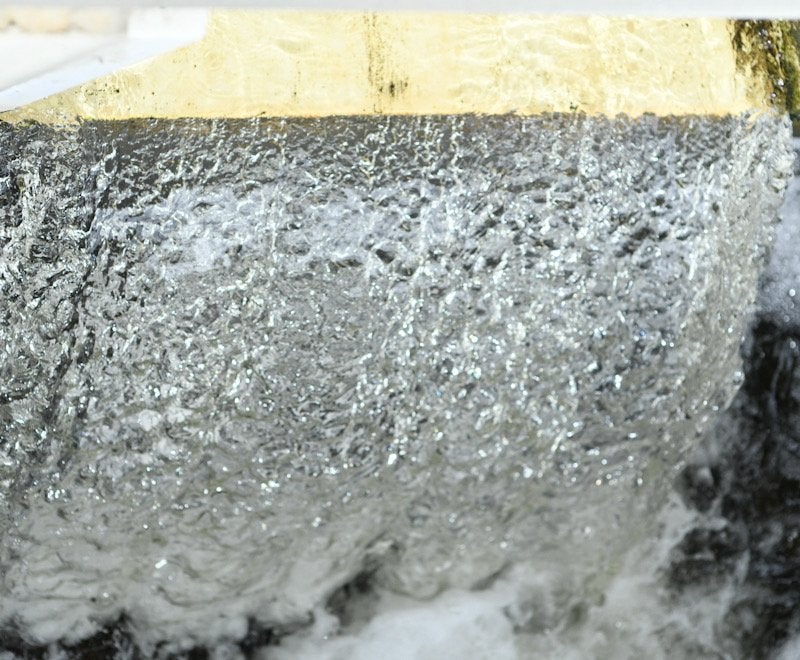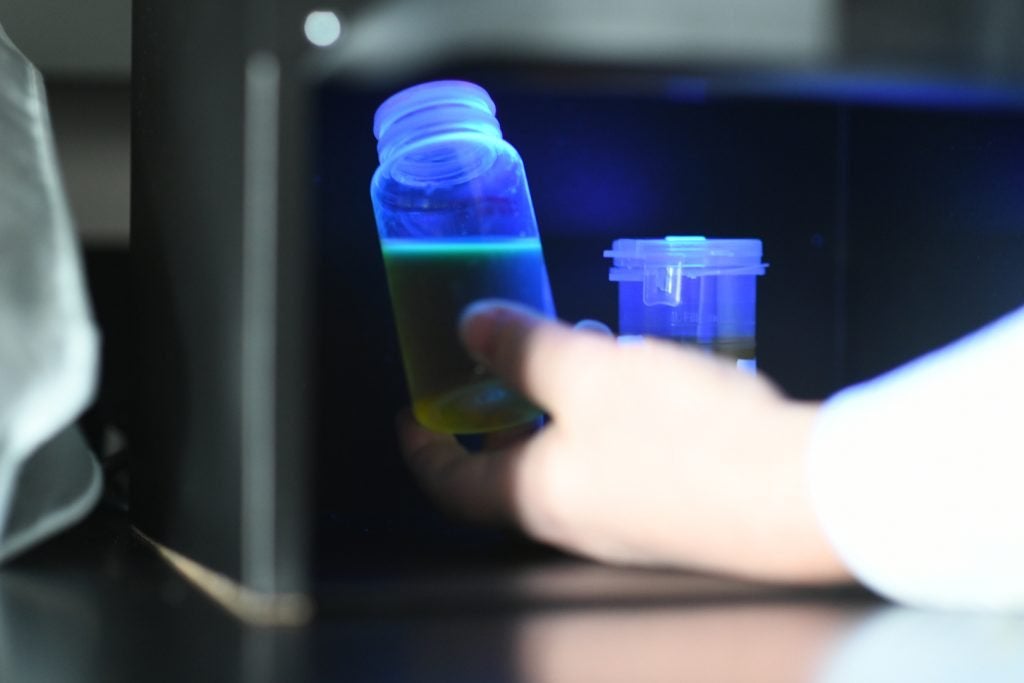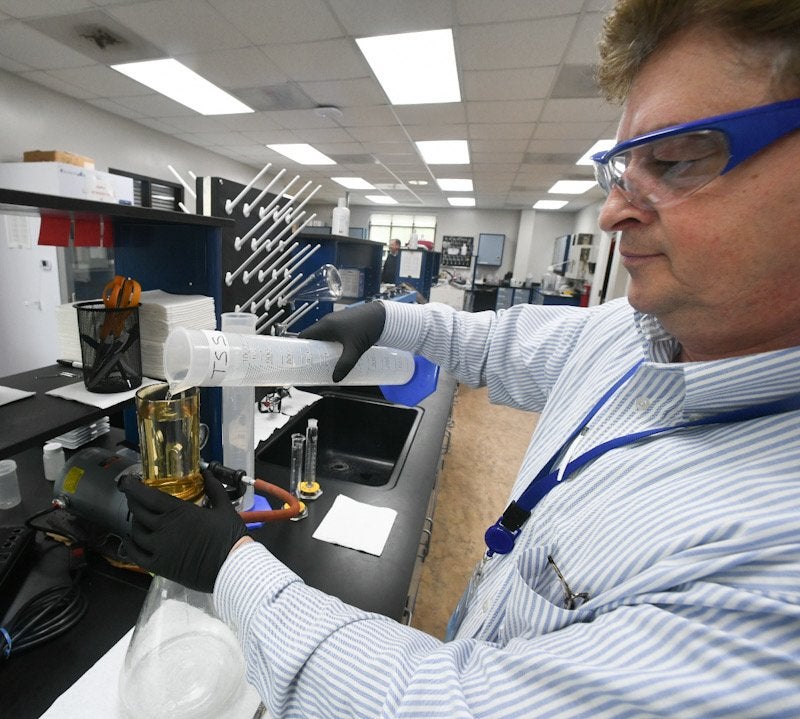The Columbia County Water Utility is spending $12.7 million to make its award-winning clean water even cleaner.
And it is the first water department in the state of Georgia to install the equipment, which will remove harmful chemicals and pharmaceuticals from the water, according to Stacey Gordon, the utility’s director.
The system employs numerous ultraviolet lights and hydrogen peroxide. The combination of the two creates a chemical process that can destroy compounds including traces of prescription drugs, such as anti-depressants, that enter the streams and rivers after people urinate and flush their toilets.
Gordon said the advanced oxidation process being installed at the county’s two drinking water treatment facilities can also destroy so-called forever chemicals such as PFAS. Those chemicals are in everything from Teflon to Gore-tex and are nearly omnipresent in the environment. Traces of the chemicals can be found in people’s bodies, including newborn babies. PFAS stands for per-fluoroalkyl and poly-fluoroalkyl.
MORE: Naming commission looks at more than just military installation titles
The UV light/hydrogen peroxide equipment is being installed at the Jim Blanchard and Clark Hills Lake water facilities as part of a renovation project that is expected to be finished in six months to a year. Like most everything else, the project is seeing some delays because of a lack of supplies.
Water treatment facilities in northern states have installed the equipment as a way to combat algae blooms, said Margaret Doss, the Columbia County Water Utility compliance manager. Georgia officials were at first reluctant to give her utility the permits to install the equipment until they learned more about the advantages, she said.

Since 2002, the Columbia County Water Utility has won the highest award in Georgia for clean and safe water – the platinum award, which is given out by the Georgia Association of Water Professionals, said John Maldonado, the utility’s water treatment operations manager.

The quality of Columbia County’s water is a two-part process. Not only is it cleaned at the intake from the Savannah River and the Clark Hills Lake water, the county utility takes numerous steps to clean sewage and other wastewater before it is released back into the Savannah River.
That process also includes ultraviolet lights at the Little River Wastewater Treatment Plant in Evans. At that plant, sewage water is treated in a number of steps, including using good bacteria, filters, aeration and before it is discharged into the waterways, ultraviolet lights to zap any remaining pathogens.
“It’s actually cleaner than the water in the Savannah River,” said Andrew Lasure, waste water manager for the Columbia County Water Utility.
Ultraviolet lights are used at three of the county’s five wastewater treatment plants. The other two facilities use large amounts of chlorine.
The water utility also has a laboratory to test for bacteria in the water and each month takes samples from 120 homes throughout Columbia County to make sure there are no problems, said Rodney Silvey, the utility’s lab manager.

The lab will also test people’s well water for a $55 fee and give advice to residents to help them protect their well water, Silvey said.
“A lot of people don’t know you have to keep that well sealed up tight,” Silvey said.
Joshua B. Good is a staff reporter covering Columbia County and military/veterans’ issues for The Augusta Press. Reach him at joshua@theaugustapress.com










